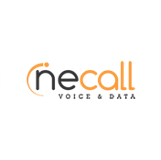The impact of coronavirus has changed the operational structure of many industries. The sector that was drastically influenced was the customer support department, which made it necessary for businesses to focus on improving their customer service. The increased demand for cloud-based support services increased cloud-related revenues. Cloud-based platforms provide business continuity, which allows you to scale up without investing in additional infrastructure. In addition, they can be accessed anywhere from your smartphone and tablet device, eliminating the need to install any additional software or hardware.
There are various cloud telephony service providers out in the market, but how do you know which one is best suited for your business? This guide will help you to understand the criteria and how it will help you make the right decision in selecting the right cloud phone system.
Things to consider before choosing your Cloud Service Provider
Cloud phone systems are a vital part of modern business communications today. With most businesses choose cloud phone systems over on-premises systems, they’re highly scalable, making them ideal for most businesses. But the main concern is how to select the right cloud phone system for the company. Let’s see the criteria’s:
Provider’s reliability
Business communication is crucial for any business or organisation. You need a reliable communication solution that can cope with different environments and platforms. So, when going for a multipurpose communication solution, you must ensure that the provider has a reliable reputation. Check out the customer testimonials and experience to ascertain the accuracy of your telephony solutions.
Cloud telephony is a no-brainer for businesses that want to remove all the moving parts from their network and end-user experience. It also works 24/7 and gives users the freedom to access their business communications from home or work. However, it entails moving components like VoIP providers, servers, and devices. Hence, glitches and disruptions can cause downtime, which users generally do not recoverable.
Compliance with data migration
The communications channel you choose must be integrated from day 1 of starting operations. The service must have a simple onboarding process and offers a fully integrated communication platform that can ensure immediate access to vital information for your customers. The service should also comply with the most popular CRM systems in the market and have other benefits, such as smoothing out customer complaints by providing real-time updates, automating repetitive tasks to save time, reducing lead times, etc.
Security
Your customer data is a top priority and must remain well-protected at all costs from unauthorized access. We have decided to set up a multi-layered security system on all our Cloud Servers. We have chosen the highest encryption standard from leading industry experts to protect you from potential hackers. It would be best if you look for the following things before choosing a cloud phone system:
• Network and database encryption
• Reliable backup and recovery plans
• Screen time monitoring and platform access
• Security measures that protect the network, database, and software.
• Two-factor authentication for login
Featured offered
Cloud telephony services are an excellent option to avoid the overheads and hassle of managing your phone system. The advantages include the minimal need for equipment, unlimited scalability and speed, relaxed compliance obligations, and less complexity in administration and billing.
Your cloud telephone service ought to be a one-stop solution for your communication requirements; that is, it offers you the convenience and flexibility of communication wherever and whenever you need it. Creating and managing your communication infrastructure ensures your cloud telephone service is always up and running. You need to check the following features:
• VR or Interactive Voice Response
• Bulk SMS
• Analytic reports
• Real-time call tracking and recording
• Toll-free number
• Virtual telephone number
• Automated database
• Virtual receptionist
• Remarketing
• Round-the-clock availability
• Efficient call routing
The features mentioned above are not available in the traditional telephony system. Hence, investing in a cloud telephony service that offers all the above features is a wiser decision.
Cost
Different cloud telephony providers have different pricing and contract terms. To find the best fit for your business, you need to talk directly to their sales team to learn about their plans and offers and any specific features included. You also should ask potential providers about long-term contracts and discounts they offer. It can help you make an informed decision while also saving time by eliminating the need to compare quotes or shop around multiple vendors.
Expectations and requirements
Before investing in a cloud service provider, you should have a clear idea of what your requirements are. You can use the following criteria to assess your current business requirements:
• Availability of default call recording
• Storage and archival policy
• Availability of default analytic reports
• Call monitoring, call barge-in, and built-in
• Provision of power diallers for outbound calls
• Customisation and API-friendliness
• Availability of hybrid cloud opt-ins
Conclusion:
If you want to transform your communications with the latest technology and seamless integration, you’ve come to the right place! Our cloud-based PBX is built on the market’s most advanced technology and designed to integrate with your existing IT infrastructure and applications seamlessly. Additionally, our service complies with the most popular CRMs in the market, so you can quickly start bringing your entire business together under one communication platform.
Necall cloud telephony service is designed to ease small business owners’ burden by providing quick and effective telecommunication services.
